If it’s summer, Alexandra is on the boat. In fact, for a few years now you can find it on boats and in the off-season. She is a professional sailor, a particularly competent young skipper, but after decades of sailing and countless successes, she will tell you through her characteristic modesty that she still has a lot to learn and that she still has emotions when maneuvering.
A charismatic but efficient instructor in teaching for the students of the sailing schools where she works, Anda is a jovial and helpful presence for her pontoon colleagues. Her permanent desire to be better, the passion she invests in sailing always propels her towards more and more ambitious projects.
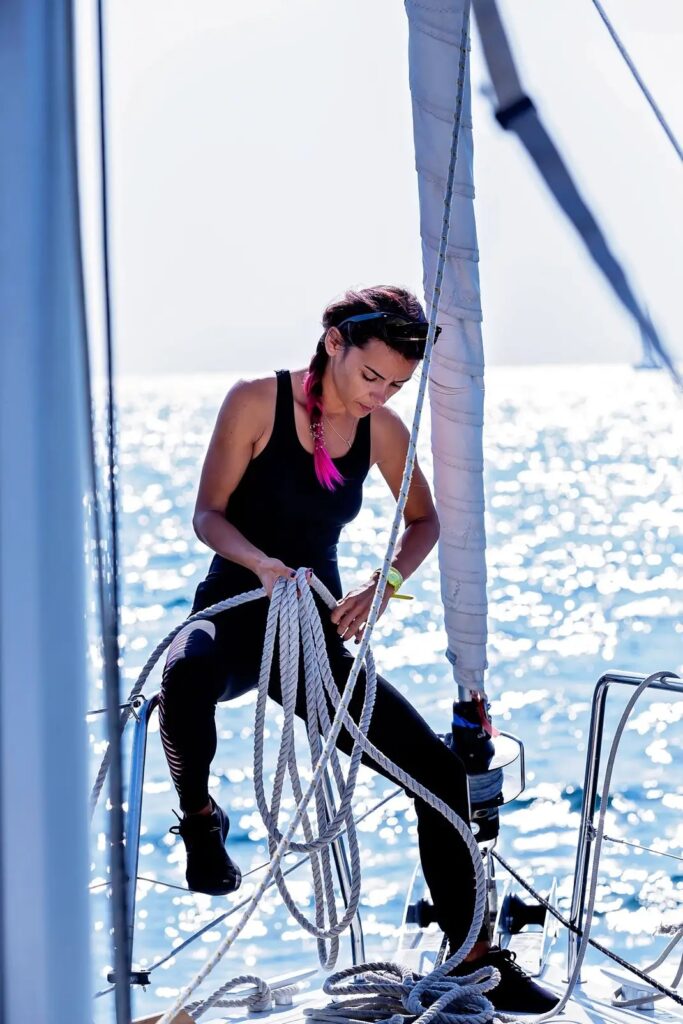
Who is Anda Apostol?
My name is Ioana-Alexandra Apostol (my father was Ion Apostol) and I am from Constanța.
I’m 36 years old, I started yachting in 2001 and in 2008 I got the license to drive boats. Since then we have done this every season, except for one in which we swapped boats for windsurfing.
How did you get started with boats?
I was lucky because I started from the dinghy, from the small boats. No other boat shows you its dynamics and what happens there like the small ones.
How old were you?
I was about 11-12 years old, it was around 2001. The first time I went to Kadett because that was the idea, to learn a little how things happen, to be a must, only then I switched to Optimist.
I stayed on the Optimist for a few years, I didn’t perform very well, but I did well in a few regattas. From the age of 16 onwards I got on the 470, but sporadically, once in a while, I didn’t have a crew of my own, I jumped with one and the other on the boat as I was the skipper because I never had the required weight for the mus.
Where was all this happening?
I grew up in Constanta, I did yachting at Știința Constanța and then a little at Electrica Bucharest. Later, long after I started sailing, I found out that my father had also done yachting when he was a kid, when he was about 17 years old and he had really been quite good, he beat many of those who represent to this day big names in this sport. My father’s name was Apostol Ion and these things happened in the 60s or so.
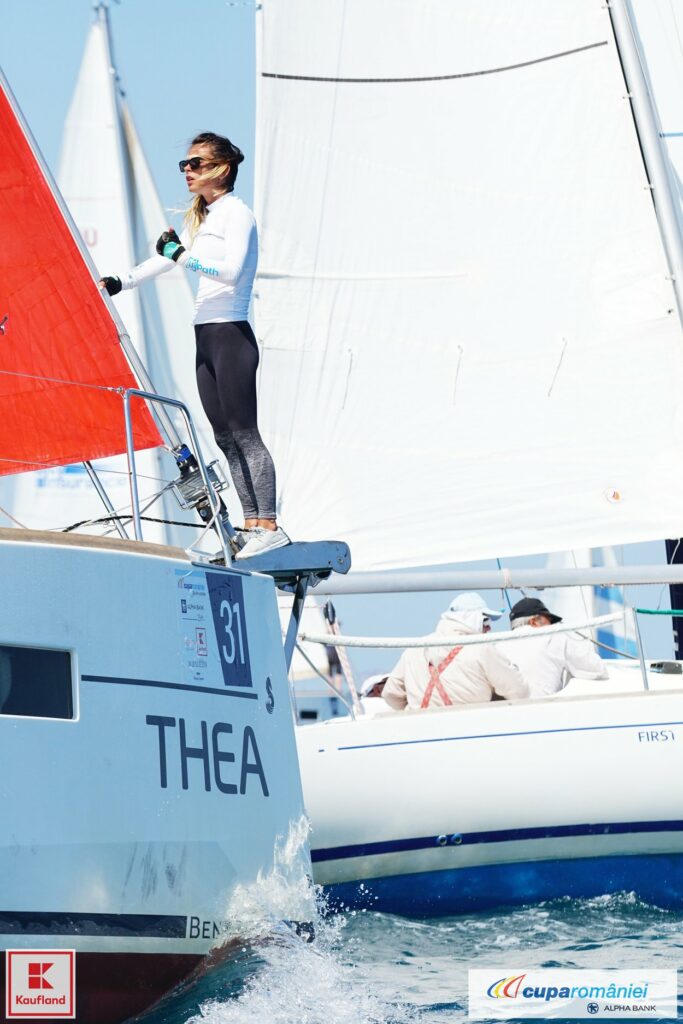
Then?
Then this passion kept developing in me, and at one point I was offered to get my license for big boats. It was 2008, I was 19 years old. Since then I continued with offshore boats, I started with 26 feet, with McGregor 26 and then I took advantage of every opportunity to go boating, to learn. I went out with any boat I could get my hands on.
As an idea, first I had a boat license and then a car license.
Until I got my boat license, Alex Mihaita helped me a lot in the sense that he stayed with me on the boat and taught me how to do all kinds of maneuvers and how things happen with big boats.
When I got to feel safe enough, I started going out alone as a skipper either at charters or schools.
Did you feel that the experience at the small boats helped you?
Yes, of course, it helped me a lot. That’s why I say I’m lucky because I find it more complicated to start directly on the big boats, you don’t have the same feeling, the boat is generally heavy and under-sailed. Basically, I just had to add something to a base I already had.
So since 2008, has your life been organized around the sailing phenomenon?
Yes, exactly, practically every season I had all kinds of outings, charter, teambuilding, school and regattas.
Summer on boats, but winter?
In winter more relaxation, I went out to the mountains, but I also tried in the off-season to go on boats in the sense of delivery. I’ve done a lot of such boat transfers so far, but only one included the ocean, I wasn’t a skipper there, I was a crew. The delivery was from La Rochelle, France to Dubrovnik, Croatia.
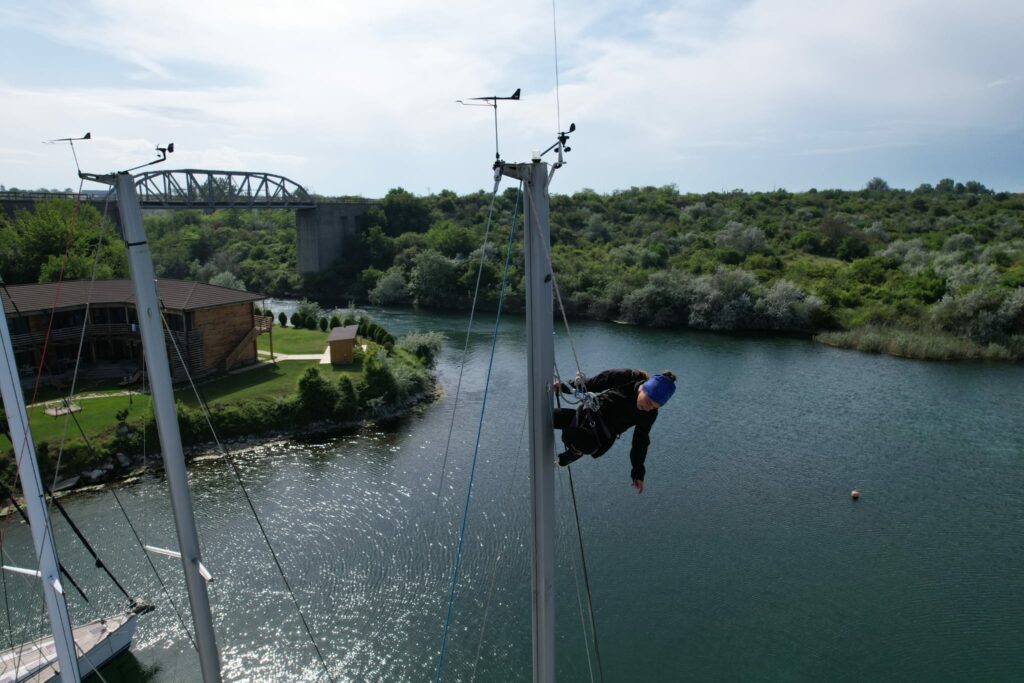
Didn’t you meet orcs?
No, I followed on specialized sites where the encounters of other boats with whales are marked. We passed through places where attacks had happened a few hours before. I would have liked to see them but I wouldn’t have wanted them to attack us.
Is the ocean tour one of the toughest you have experienced or have you had shorter but more challenging and risky ones?
Yes, we had shorter and more intense ones, even if in the well-known places. This ocean tour is part of my more recent evolution because I don’t have much experience in this area and I was a little tense. We were with a catamaran, but we were lucky that the Bay of Biscay was also calm, and on the coasts of Spain and Portugal we had the wind of 30-38 knots, but a wind which helped us a lot so we were lucky enough to be a fairly quiet tour.
What other episodes can you tell us about?
I’ve had shorter and more intense experiences in others. Once, at a regatta in Balchik, the wind picked up, the sea mounted, fog and on top of all this I was close to dropping a man into the water because of another crew member.
Another time we had a situation where the rudder transmission broke down and we had to use the emergency paddle which on that model of boat, a Hanse, was a kind of bicycle handlebar. It was a little counterintuitive to use plus a lot of force had to be applied, then in the end there was not much room for mooring, it was the high quay for ships, it was not really simple.
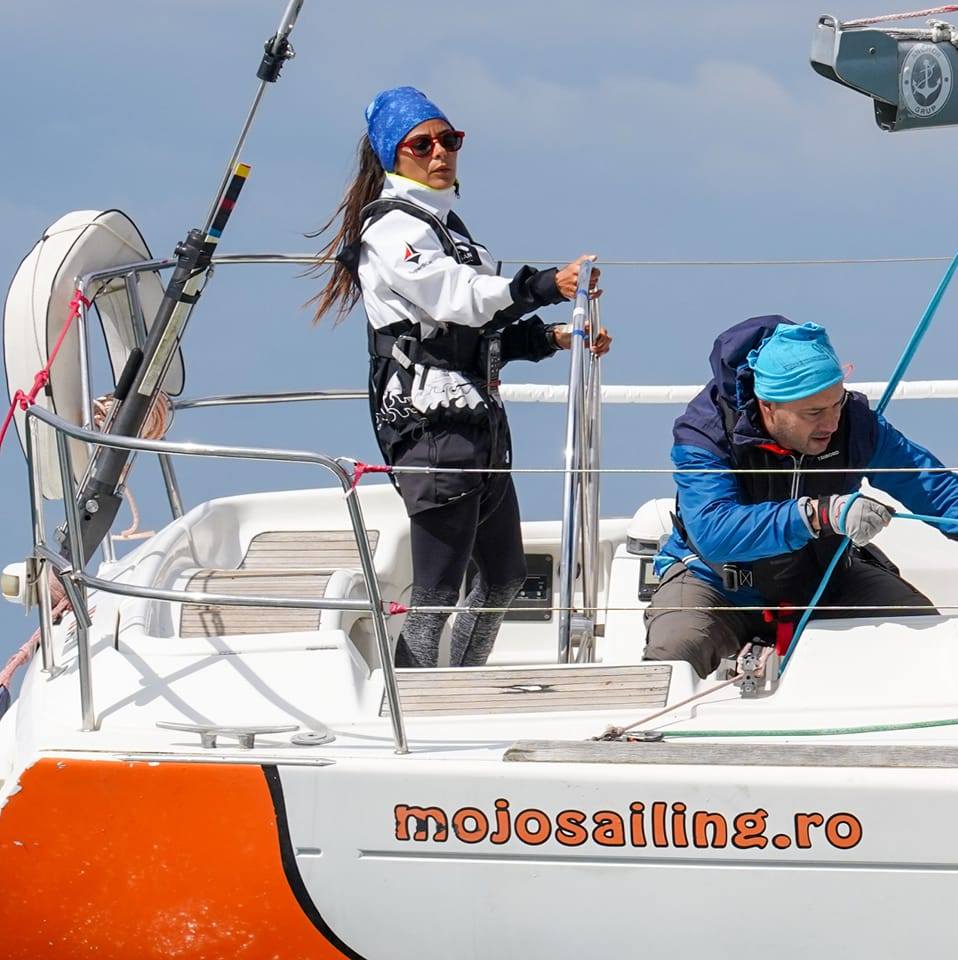
Of the challenges faced by a skipper, whether it is crew management, technical situations related to the boat or weather conditions, which do you think are the ones where you need to be most careful?
As a skipper, I try to take care of the weather and the technical details of the boat in advance and try to be prepared with everything possible.
The most difficult thing is to make people understand some things.
Can you say that people nowadays are less tolerant of discomfort?
I can say that I meet all categories of people and yes, there is also the option when they do not have absolutely all the conditions met and become a little picky and nervous but I cannot say that they prevail. Most people are ok, they accept to get their hands dirty if necessary, to resist if something hurts a little, a slightly hurt knee, etc.
What I have noticed, however, is that there is another category, also very numerous, of people who come to school, but are not really open to learning. Either they have the impression that they already know, or they came for other reasons such as spending time with the father-son family, but they are not willing to get very involved in what we have to do here.
The vast majority are ok, however, they come to do what they have to do, even if some are atechnical and it is difficult for them.
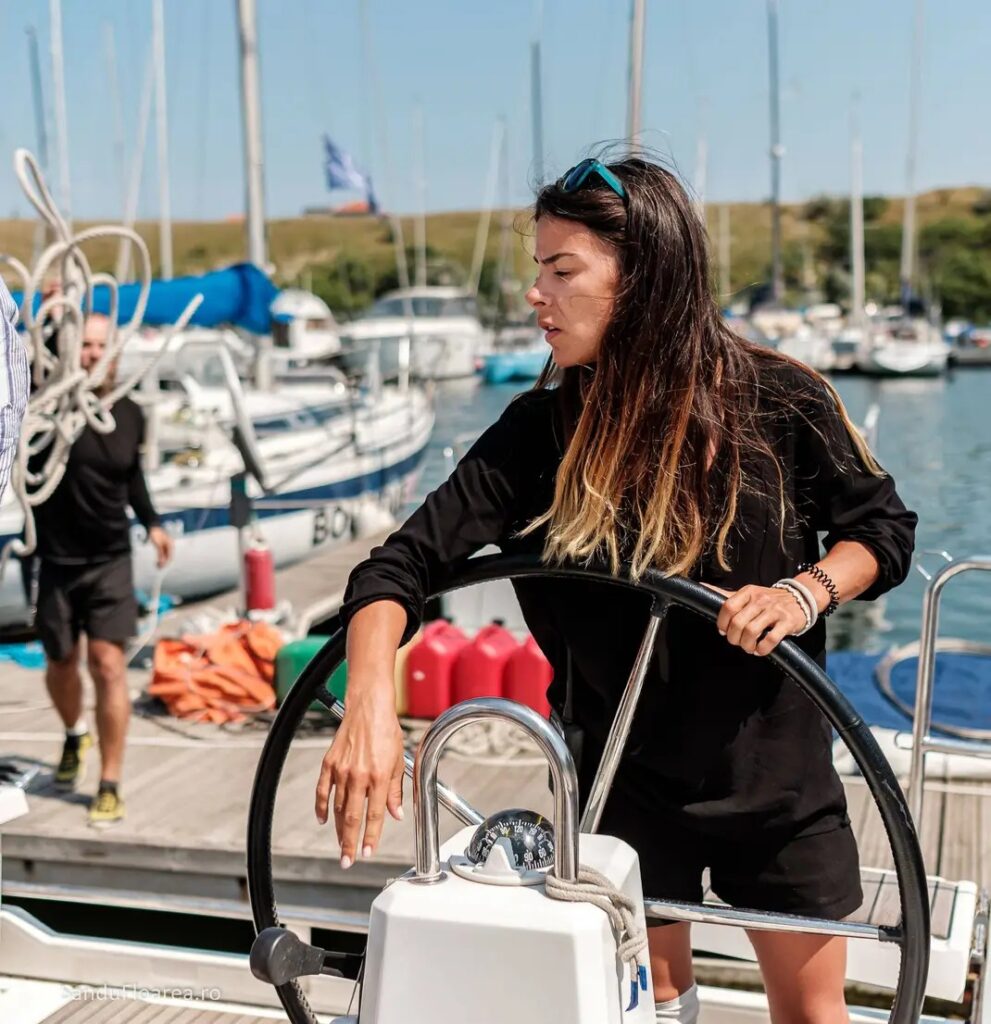
What difficult technical situation did you say you had?
I had a school session with some really serious people who are eager to learn. I was at sea and I was doing maneuvers, turns. At one point, on the bearer, I saw how the top of the fire went wrong and a part wrapped around the cloth. I thought at first that the fire trimmer was wrong, but in fact the fungus had unraveled.
There were 20 or so knots of wind, beginner people and the fire was not coming down. The people were very prompt, they responded well to the commands, we took off the mainsail and we were preparing to dock in a more sheltered place even so with the fire high but in the end we managed to lower it.
It wasn’t necessarily a dramatic situation, but it was a situation that I had never encountered before.
How is it with people, after all?
You can work on the people who come to school because that’s why they came, but those who came to the charter, that’s where you have to do pretty much all the work. That’s why it’s good to have them all ready.
At school, in general, I do the training together with the crew, just so that they can learn. Even in charter I still involve the people on board with some small tasks, and after we leave the shore, I offer the helm to the guests, of course, under my supervision, because I hope they like it and thus promote this sport.
You quickly realize if people like to hold the helm, if they enjoy it, or on the contrary, sometimes you realize that they don’t like it or even that they are seasick.
We here in Limanu are privileged because we have the canal and if they are sick at sea, we can always enter the canal and walk there, we even have space to stay at anchor.
What were some memorable moments for you, maybe a more stressful moment, maybe a funny one, maybe a moment of special performance?
A scary moment was when a man was about to fall into the water in the fog somewhere offshore on Shabla. Another unpleasant moment was one related to people.
Two boats were at anchor, it was a moment of relaxation, we were bathing. All good and beautiful until the moment someone thought of making a joke and pushing me into the water, against all the safety-briefings made.
I fell with my phone, but also with the guy who had pushed me, because instinct made me cling to him. I explained to him later that jokes like this are not made, it is dangerous, someone can hit the head of a falling boat and not get out of the water, but he continued in the same line as the gesture made, answering me mockingly. We weighed anchor and went to shore.
As for positive moments, for me the greatest satisfactions are those when I manage to get over some difficult moments and return safely to the shore, when, in complicated situations, my solution turns out to be the right one.

Well, what is it like with climbing the masts?
Well, it’s like this: on a normal day, if I walk on the pontoon, there are at least a few people who ask me to get on the mast of their boat to solve something. That’s because they have to lift my 42 kg versus the probable minimum 80 kg of one of their crew.
Yes, but you probably have at least 42 climbs on the masts and therefore experience.
Yes, there’s also that, people think yes, ok we’ll upload this one because it’s easy but she’s also good at solving something there, I know they can count on me. Even if I don’t know how to solve certain things, we communicate, I explain to them from above what the problems are, they explain to me what needs to be done and we solve the problem.
I had a period when I didn’t refuse anyone with anything and we didn’t get to do mine, which is not fair, so now I schedule them for when I can.
How do you see the future evolution of your career?
I would like to continue with this part of exploring other seas, I played in the schoolyard a lot, but it seems to me that from a certain point on I don’t progress. Yes, I practice millions of berths and it’s ok but I want more.
I want to make an ocean liner someday, maybe to reach more demanding seas such as the North Sea.
It’s not something that burns, but it’s a direction that I would like to explore more, other sailing conditions and maybe other types of boats.
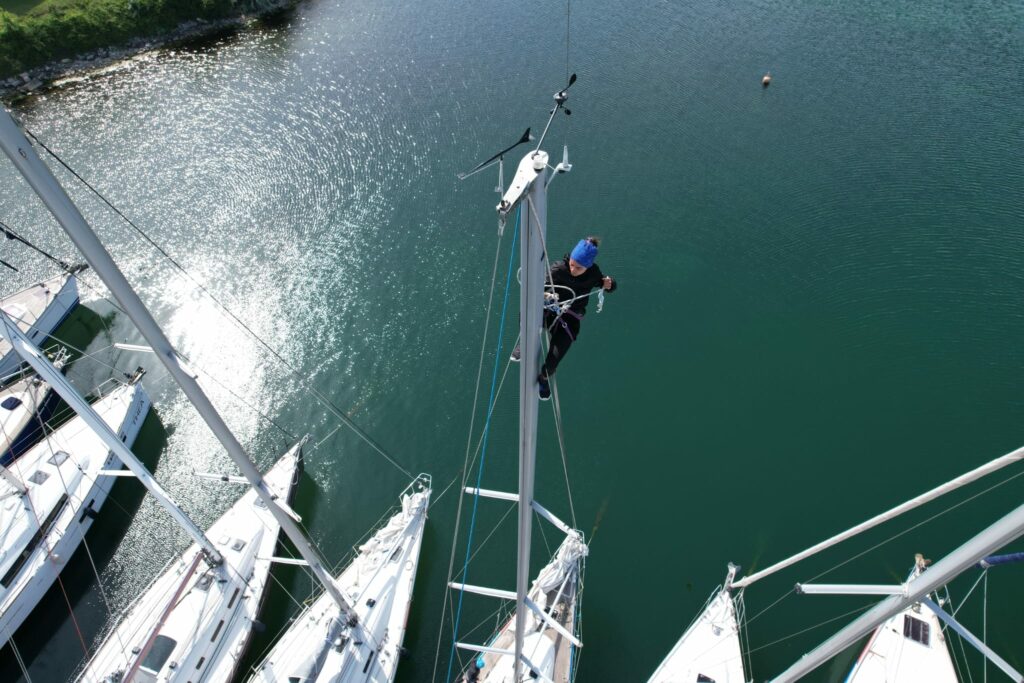
How do you manage to balance sailing activities that bring you money with those you would like to do but are not paid?
I’m used to minimal comfort and I don’t need very large amounts of money to feel good. I prefer to earn some money from some deliveries so that I can take care of my passions. I realize that time passes very quickly and I have never regretted when I did things for myself. I don’t regret it when I don’t make money, but I do a bit of windsurfing, for example. From this perspective, it also helps that I don’t have children and I can afford to leave when I want and where I want.
I saw quite a few places and enjoyed many experiences. I’m ok with my lifestyle and I love my freedom.
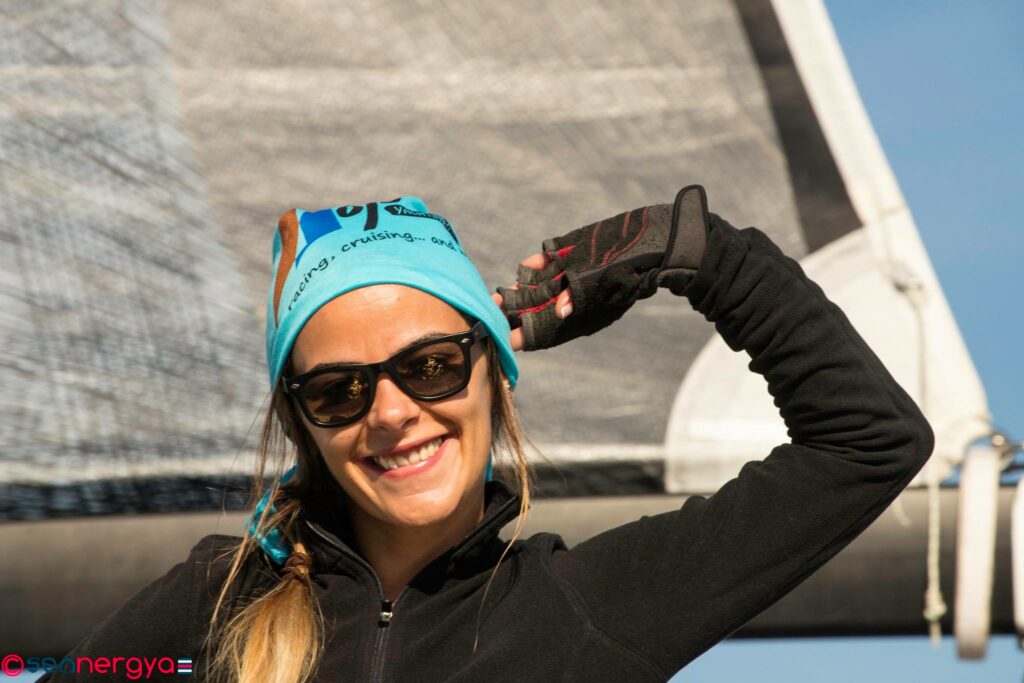






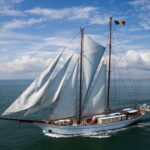
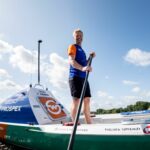
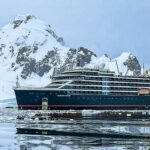


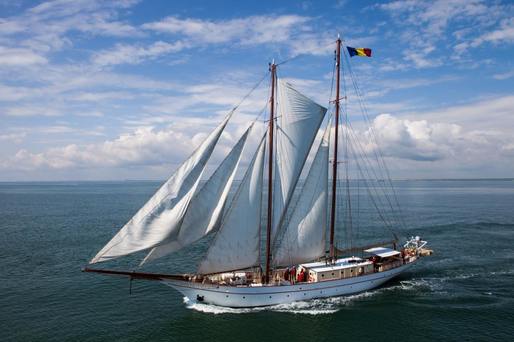
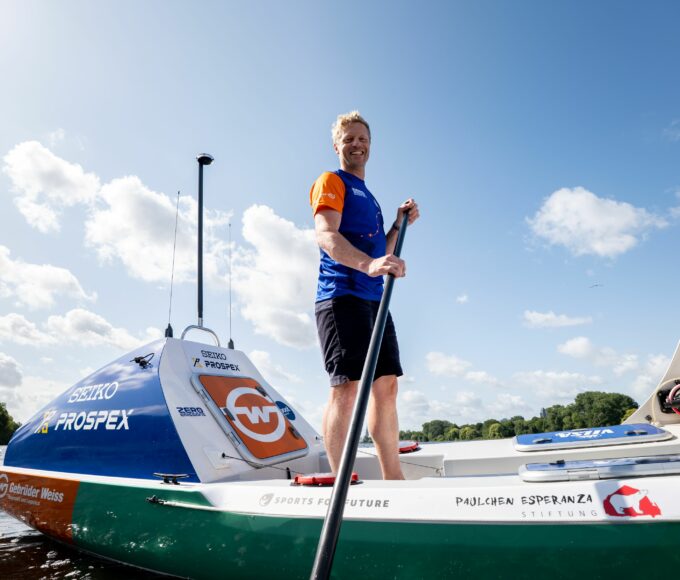
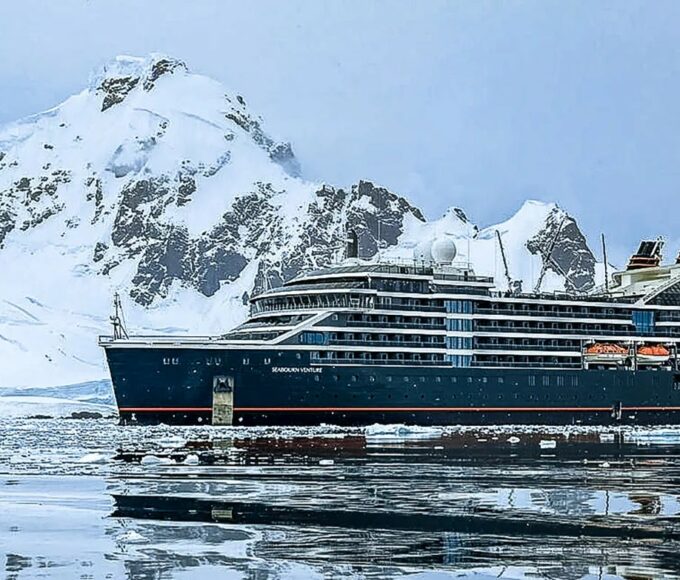

Comentați?